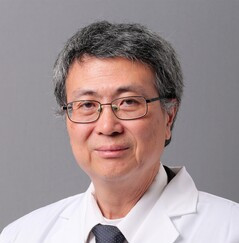Deadline for manuscript submissions: 30 June 2026.




Topic Introduction
Synthetic biology is a rapidly evolving field that combines elements of engineering, biology, and AI/computer science to create and modify biological systems with unprecedented precision and control. This special issue aims to showcase the latest advancements in synthetic biology and their applications in therapeutics and healthcare. The collection will cover a broad range of topics, including gene editing technologies, engineered cells and tissues, novel drug delivery systems, microbiome engineering and the development of innovative diagnostic tools. Additionally, the issue will explore the ethical, legal, and social implications of synthetic biology in medicine and discuss the challenges and opportunities for the future of this exciting field.
Keywords
Pattern formation is a fundamental process in biological development, enabling the transformation of initially uniform or random states into spatially ordered structures. A comprehensive understanding of the formation and function of these patterns is crucial for unraveling the underlying principles of biological design and engineering. In recent years, synthetic biology has emerged as a powerful discipline for investigating and manipulating pattern formation in biological systems, involving the design and construction of novel biological components, circuits, and networks with specific functionalities. The integration of computational simulations (in silico) and experimental techniques (wet lab) in synthetic biology has significantly advanced our knowledge of pattern formation and its implications in biological design and engineering. This review provides an overview of the computational simulations employed in studying pattern formation and introduces the representative and cutting-edge experimental methods utilized in wet labs.
Polyketides (PKs) are a large class of secondary metabolites produced by microorganisms and plants, characterized by highly diverse structures and broad biological activities. They have wide market and application prospects in medicine, agriculture, and the food industry. The complex chemical structures and multiple steps of natural polyketides result in yield that cannot be met by purely synthetic methods. With the development of synthetic biology, a number of novel technologies and synthetic strategies have been developed for the efficient synthesis of polyketides. This paper first introduces polyketides from different sources and classifications, then the reconstruction of biosynthetic pathways is described using a “bottom-up” synthetic biology approach. Through methods such as enhancing precursors, relieving feedback inhibition, and dynamic regulation, the efficient production of polyketides is achieved. Finally, the challenges faced by polyketides research and future development directions are discussed.
Through the use of prebiotics and probiotics, fermented foods offer significant health benefits by enhancing host nutrition and microbiota composition while providing distinctive flavor profiles. Fermentation substantially alters the bioactive compounds in these foods compared to their natural state. Additionally, fermented foods contain probiotics that can modulate consumers’ gut microbiomes, which in turn regulate host biochemistry to help combat various metabolic diseases. Metabolic dysfunction-associated steatotic liver disease (MASLD) represents a growing global health burden. Gut microbiome dysbiosis, combined with unbalanced nutritional intake, is considered a primary driver of disease pathogenesis. Fermented foods can modify the bioavailability of micronutrients—including carbohydrates, polyphenols, and vitamins—thereby influencing host metabolism. Moreover, the probiotics present in fermented foods, along with their modulatory effects on the gut microbiota, contribute to both the management and prevention of MASLD. Modern fermentation approaches, leveraging synthetic biology, systems biology, and metabolic engineering, can further maximize these health benefits. This review summarizes the components, bioactive compounds, and mechanistic pathways by which fermented foods influence the pathogenesis of MASLD, and highlights the potential applications of modern fermentation technologies to enhance their health-promoting properties.
The dysregulation of microbial communities poses severe threats to host health and ecological stability, yet traditional microbiome modulation strategies lack specificity and often exacerbate dysbiosis. The CRISPR-Cas system offers unprecedented potential for targeted microbiome regulation due to its sequence-specific nucleic acid recognition and cleavage capabilities, but its translation is hindered by inefficient and non-specific delivery. As natural bacterial predators with inherent host specificity, bacteriophages have emerged as ideal carriers to address this delivery bottleneck. The development of CRISPR-armed phages combines the targeted delivery of phages and the precision editing advantages of CRISPR-Cas systems. This review systematically elaborates on the design and mechanism of CRISPR-armed phages for microbiome engineering. CRISPR-Cas systems were classified on the basis of their structural and functional characteristics, as well as their regulatory effects, in detail after phage delivery. The engineering strategies of integrative and non-integrative phage vectors were then discussed, followed by their applications in ecological regulation and genetic regulation of the microbiome. The current limitations were finally analyzed, such as narrow phage host range, bacterial phage resistance, and low editing efficiency. This review provides a comprehensive theoretical framework to promote the development of CRISPR-armed phages, aiming to advance precision microbiome engineering for human health.